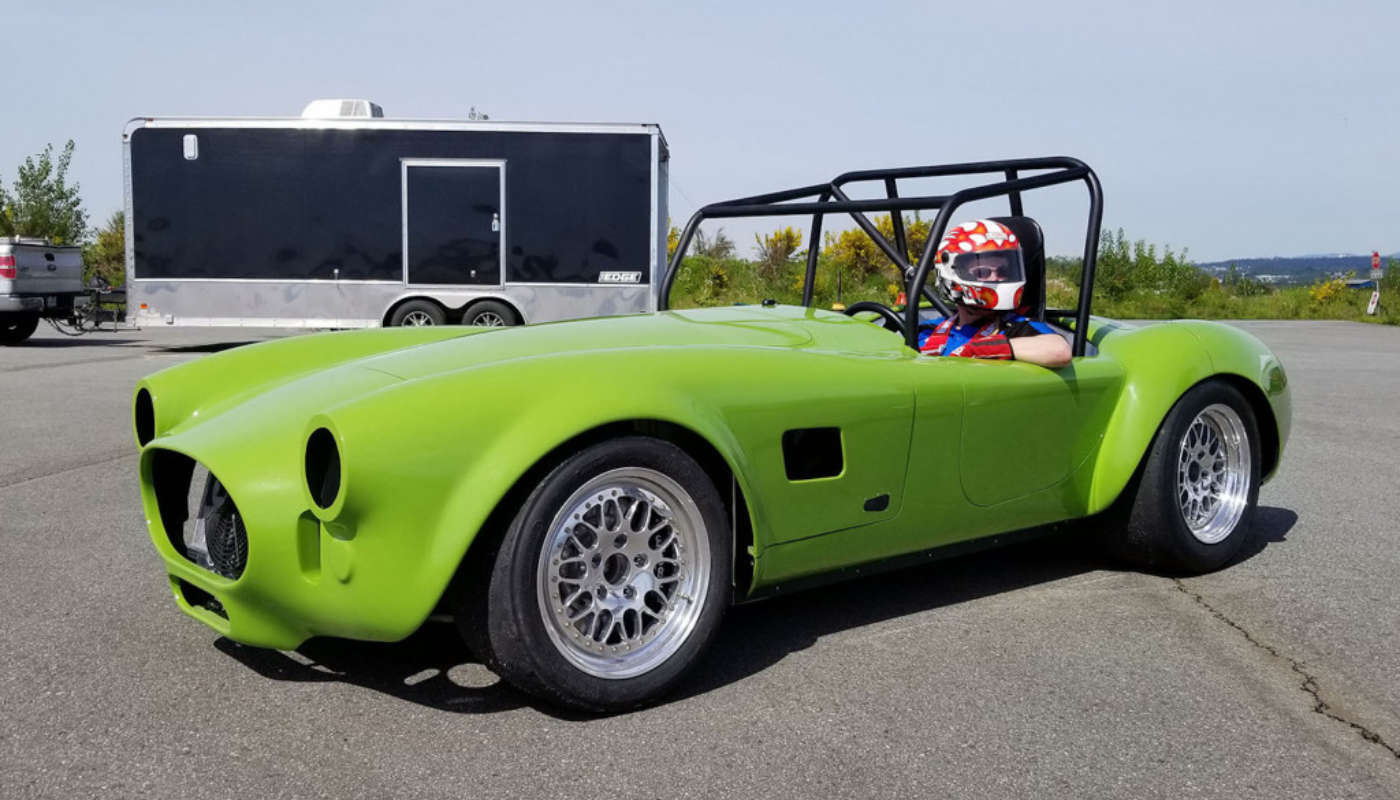
Tesla-Powered Cobra Racer
By Dean Larson
It’s a safe bet that the majority of us in the automotive hobby will always prefer a symphony of pistons and lifters to the monotone whine of an electric motor but, at some point, we’ll be forced to reckon with the inherent benefits of electric. While I'm going to continue living in my world of internal combustion and ignoring electric, one extra-green Cobra race car in the Pacific Northwest is forcing racers to come to terms with EVs on the track.
The car was built by a group of engineers known as EPower Racing. By now you’ve guessed it, this Cobra replica is powered by an electric motor sourced from the headline-making Tesla P85, but there’s much more to the story than that. Some serious engineering and fabrication has gone into making the Cobra rip around the track, and it goes beyond the electric motor.
The crew started back in 2015 in Vancouver, British Columbia, by designing a chassis for the car on Solidworks and testing it with FEA (finite element analysis). Having spent years racing classics and late-models alike, the guys behind EPower knew how crucial balance is for a race car, so all of the chassis elements were custom designed for the project, aside from some C5 Corvette suspension components.
The Tesla Model S power plant, a four-pole AC induction motor capable of 416 hp (310 kW) and 443 ft⋅lb (600 N⋅m), is located in the rear of the vehicle, and uses a single speed drive thanks its 16,000 rpm redline. With the instantaneous torque of the electric motor, the crew knew low-speed traction would be a concern, so a custom limited-slip differential was designed and manufactured by Quaife Engineering.
With electric, it’s always battery technology that’s the limiting factor, so the crew couldn't afford to skimp here. The best battery pack available at the time was from the Kia Soul EV, and EPower reckons they got their hands on one of the first electric Souls to make the salvage yard. The 30 kWh battery pack weighs just 400 pounds, and the stock Kia battery management system was retained. The system is even capable of regenerative breaking, but it will seldom be used, as it would throw off the car’s balance on the track.
To up the excitement factor, EPower Racing wrapped the car in some familiar lines. A custom fiberglass Cobra body was laid up with front and rear clamshells for easy access the car’s not-so-mechanical mechanicals.
The final product weighs just 1,950 pounds, a full 2,850 pounds less than a Tesla Model S, and the Cobra’s performance on the track speaks for itself. The car is already quick, but the crew hopes to up the performance by improving cooling to the motor and inverter.
While I’ll still choose the grunt of a low-strung big block and a manual transmission every time, it’s inspiring to see someone spice up the image of EVs like EPower Racing has.

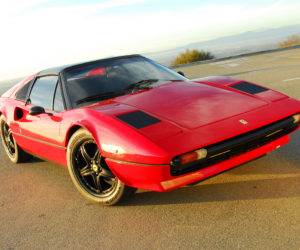
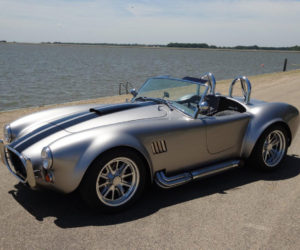

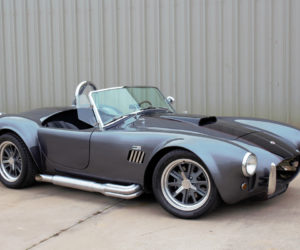
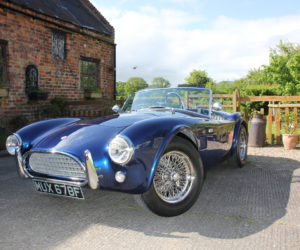
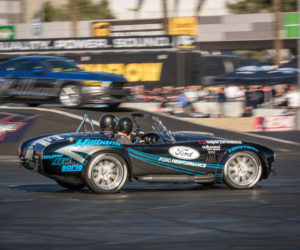




Comments for: Tesla-Powered Cobra Racer
comments powered by Disqus